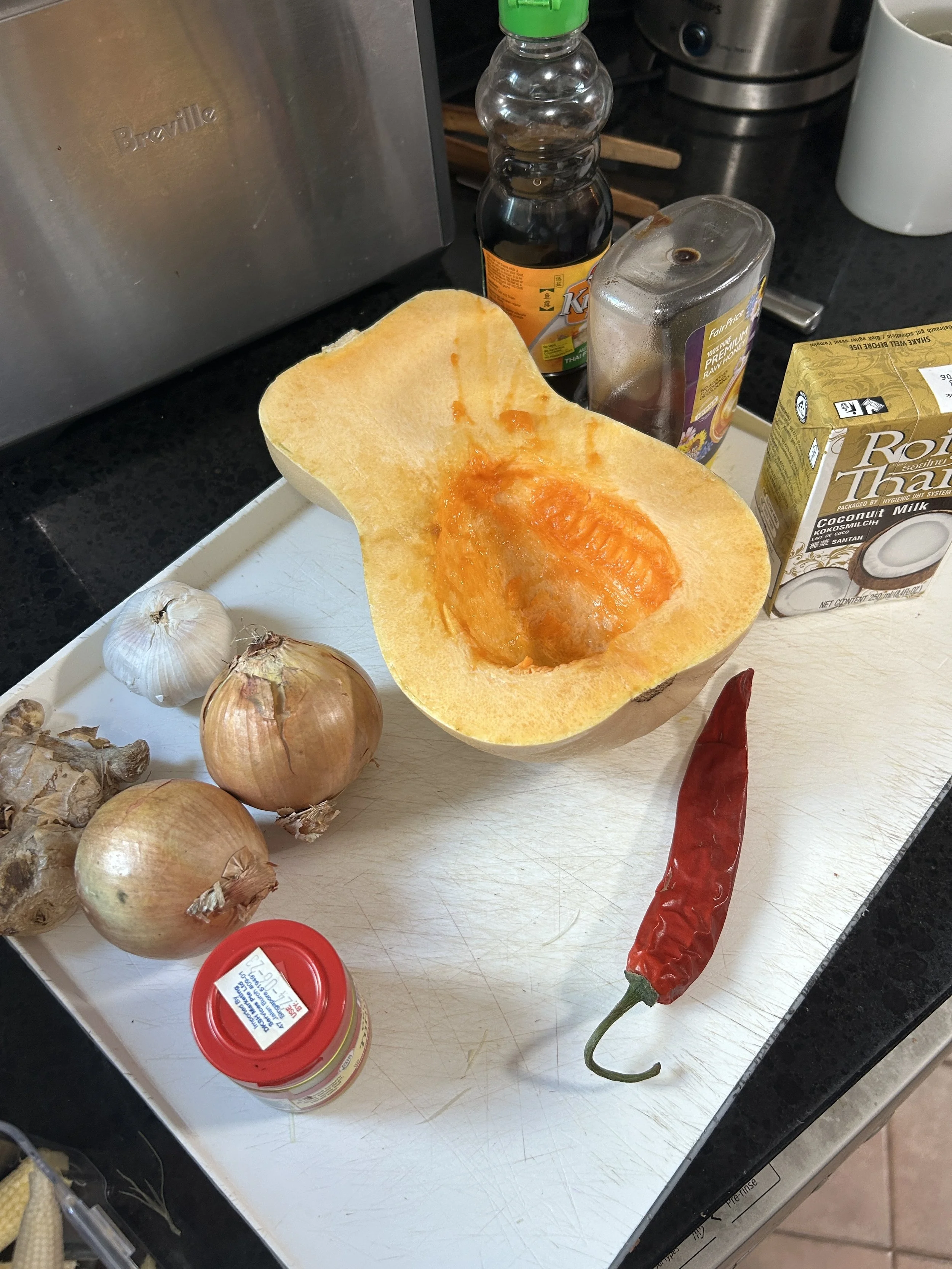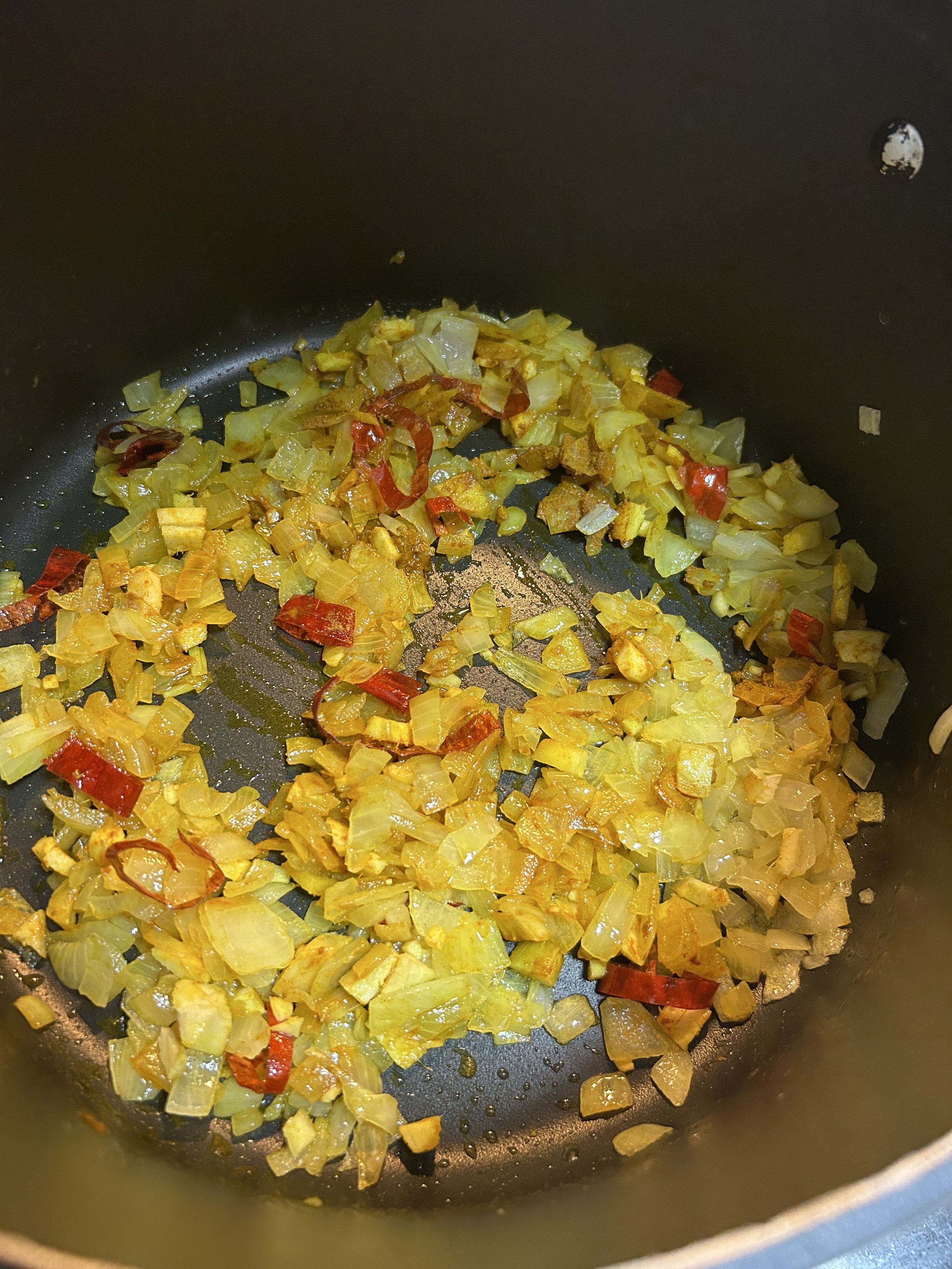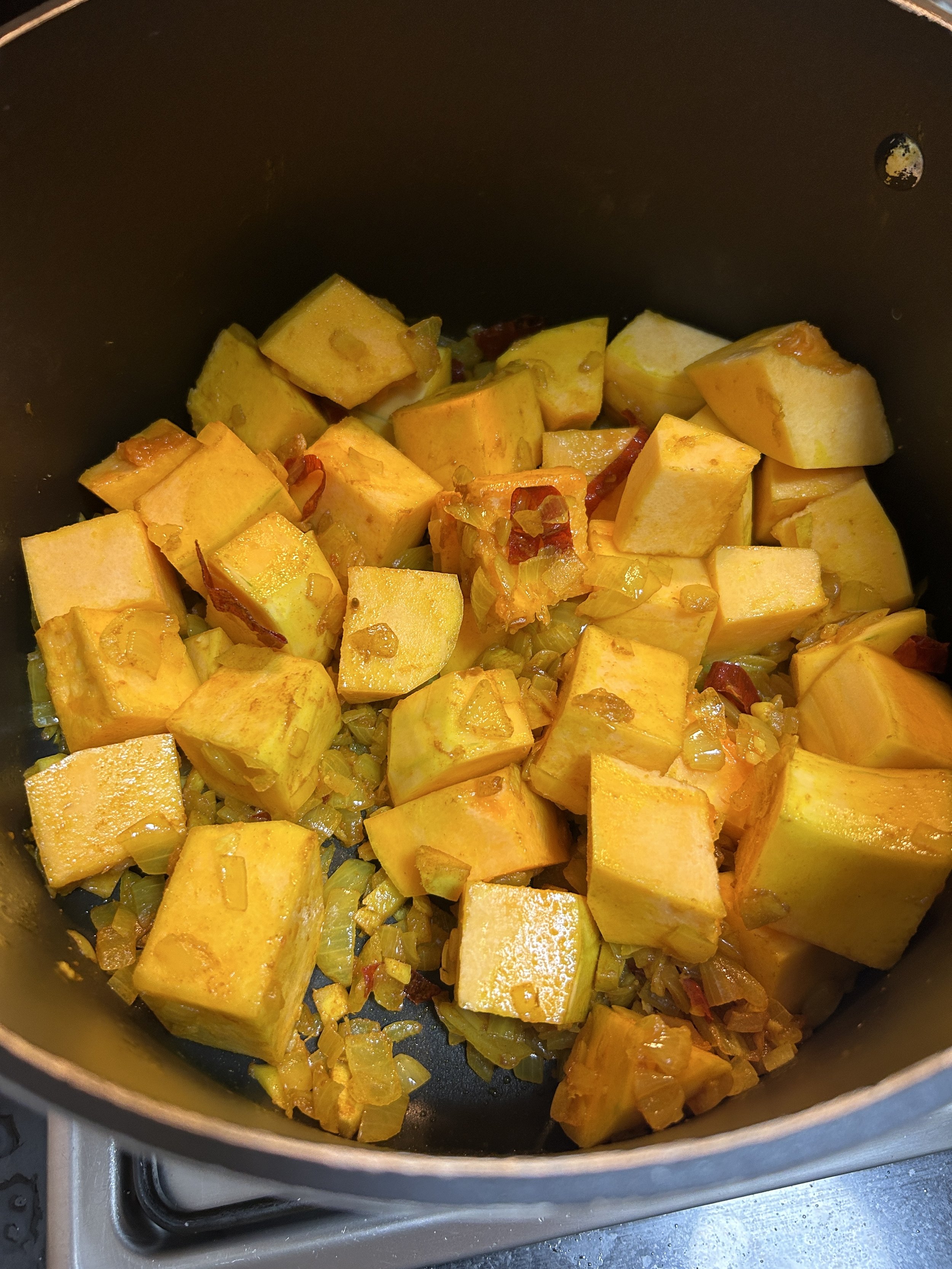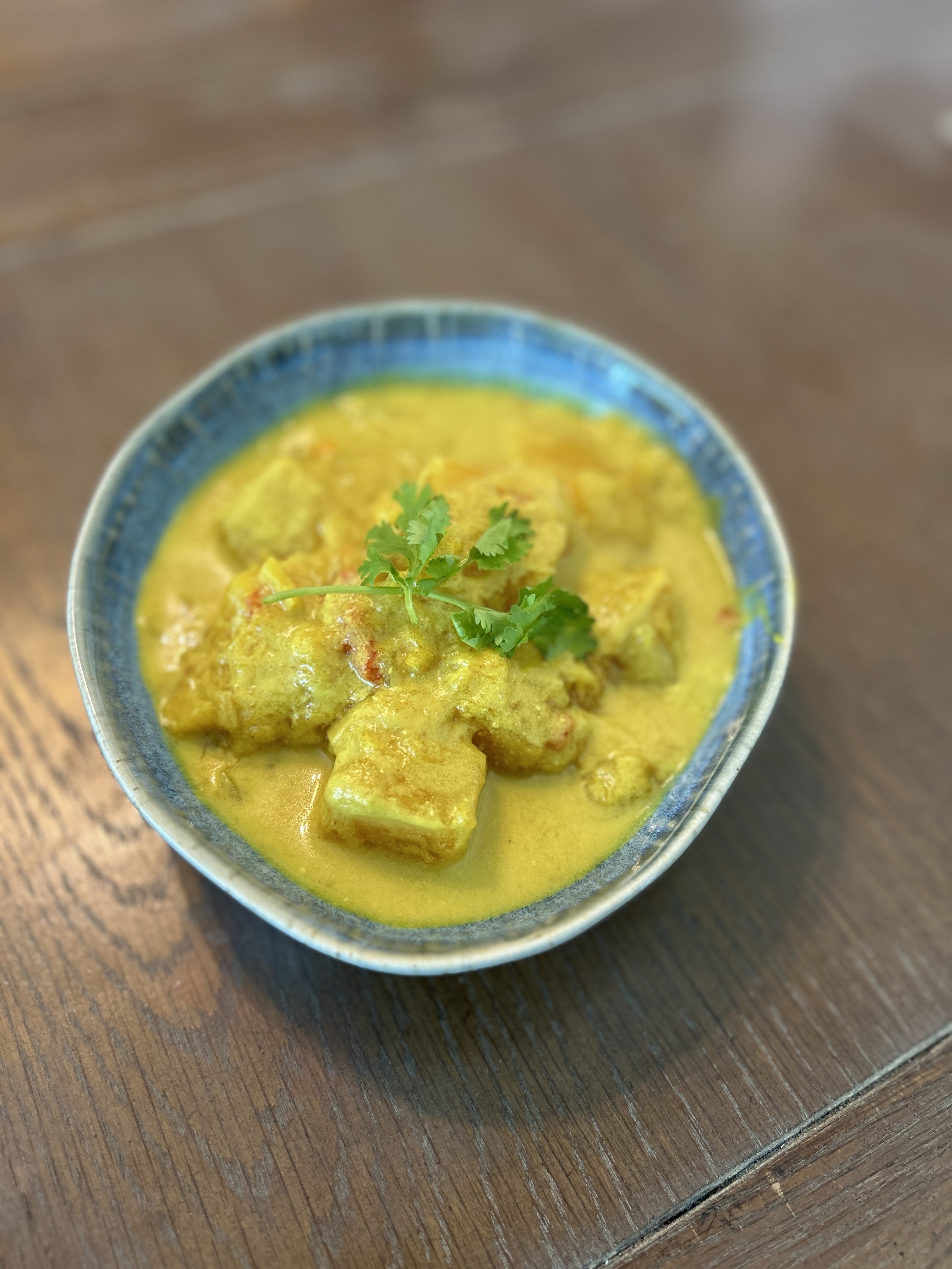Recipe: Coconut and Butternut Squash Curry
We have a few meat free days in our house and this has meant trying out lots of different veggie curries. I love this one as it’s a mild, creamy and coconut one which means the kids can try it too, and it reminds me of my girl friends back home as they gave me this cookbook as a birthday present a while back :-)
I highly recommend the book @26grains, though it does have some different ingredients so you might need to stock up first if you aren’t used to using some of the ingredients. That is also what I love about it - it increases the variety of foods in our diet and variety is the spice of life :-)
Another bonus to this recipe is that it uses turmeric - a spice which is associated with many health benefits, especially for those with PCOS.
INGREDIENTS:
2 tbsp olive oil
2 onions, finely chopped
Salt and pepper
1 garlic clove, finely chopped
Root ginger 4cm finely chopped
1-2 red chillies, sliced
1 tsp ground turmeric
1 tsp ground coriander
1 medium butternut squash, peeled, deseeded and sliced into 3cm cubes
350ml hot vegetable stock
400ml coconut milk
1 tbsp fish sauce
1 tsp honey
Finely grated zest and juice of 1 lime
Handful of coriander
METHOD
Heat oil in a large pan and add the onions and a pinch of salt and cook for 8-10mins, until softened.
Reduce the heat to low and add garlic, ginger, chillies and spices to the pan. Cook for a minute until the spices start to smell fragrant.
Stir in the squash and cook for another minute before increasing to a medium heat and adding half the stock and half the coconut milk.
When bubbling add the rest of the stock and coconut milk, and the fish sauce, honey and lime zest and juice.
Season to taste and reduce heat to low and leave to simmer for 10-15 minutes until squash is tender.
Serve with rice, or quinoa or whatever you like really and top with coriander.
ENJOY!





